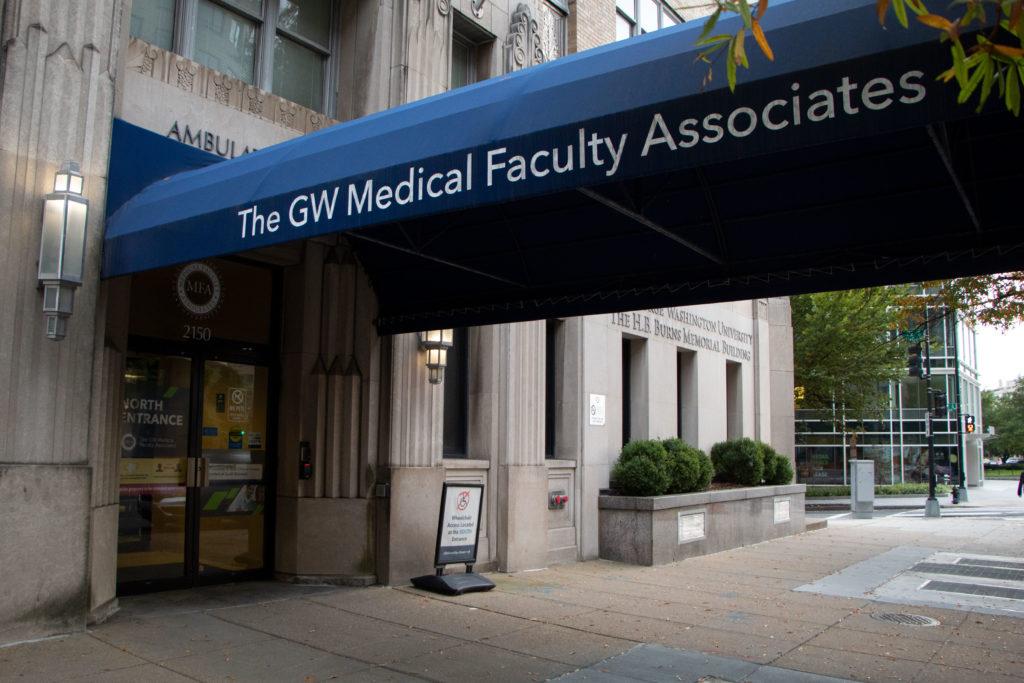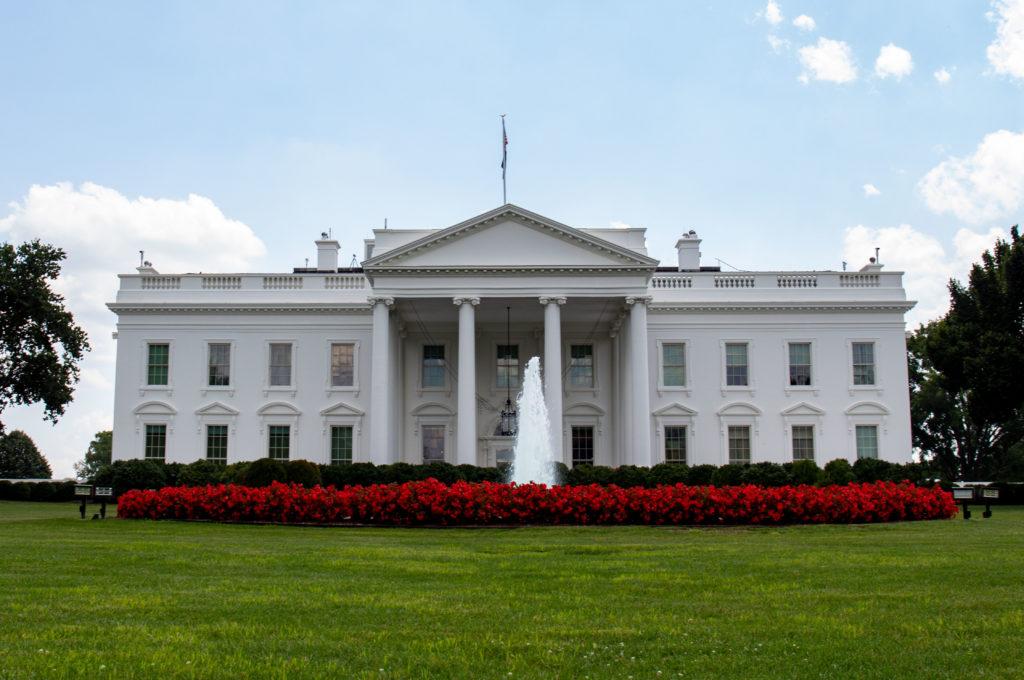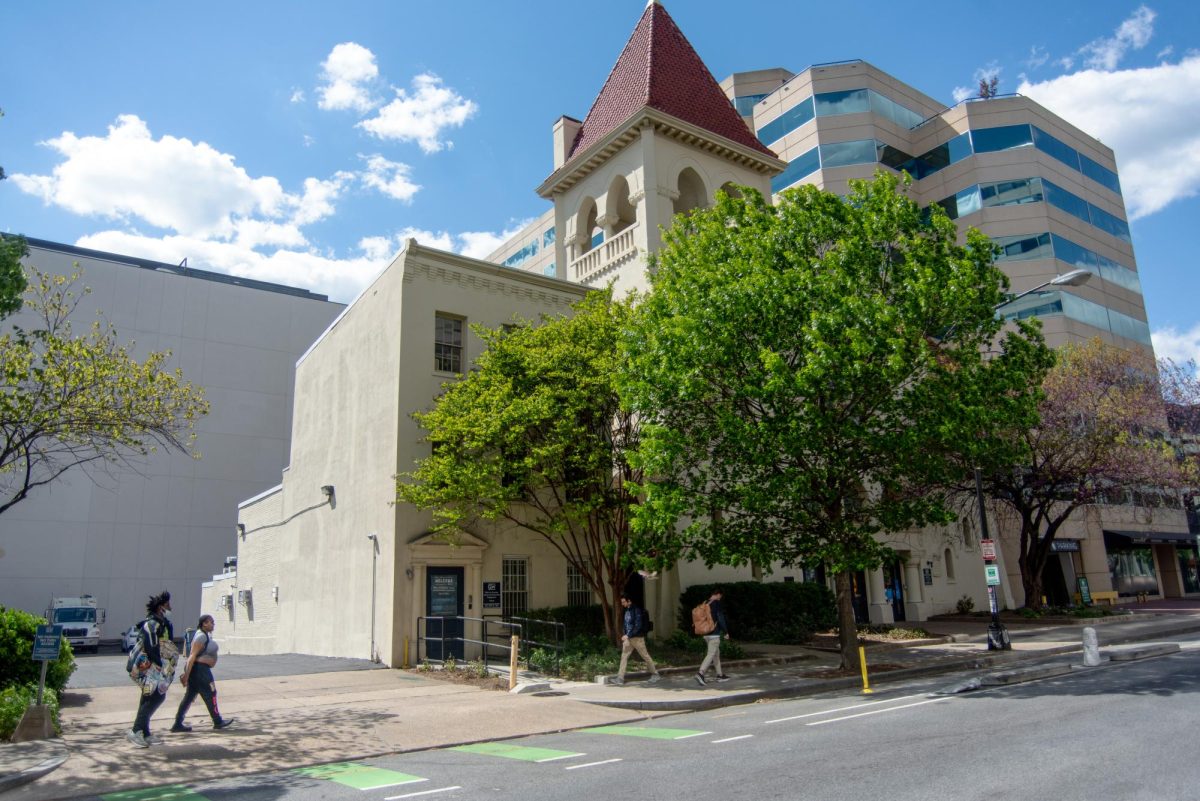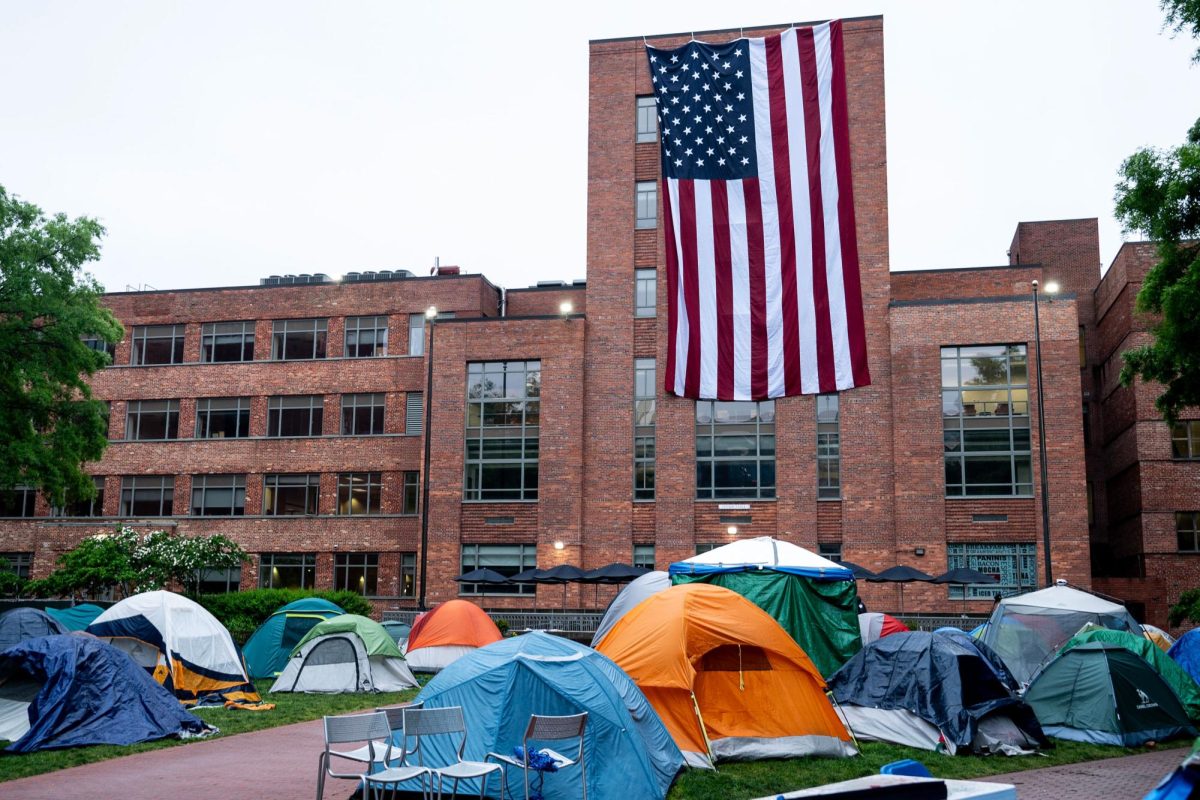Chief Financial Officer Bruno Fernandes said the Medical Faculty Associates likely won’t break even by the end of Fiscal Year 2024 at a Faculty Senate meeting Friday, walking back the University’s profit projections the second year in a row.
Fernandes said he doesn’t think the MFA — a group of physicians and faculty from the School of Medicine and Health Sciences and GW Hospital — will pay back its $200 million debt to the University by the end of FY 2024, projecting that the MFA would instead lose between $30 and $50 million this fiscal year. Former interim University President Mark Wrighton walked back officials’ projection that the MFA would break even by the end of FY 2023 in January, making Fernandes’ announcement the second consecutive year that officials have backpedaled on their forecast of the MFA’s finances.
“I’m not trying to sugarcoat the numbers and say that we’re going to break even at this point, just because I don’t believe that we’re going to break even in fiscal 24,” Fernandes said during the meeting. Fernandes did not specify the fiscal year officials project the MFA to break even.
Fernandes also said the MFA will pause its plans to sell the 2300 M Street building as they are “work through” bank loans and that he doesn’t know when the group would restart the process of the sale. Officials announced in November 2022 that they would sell the building in a “sale-leaseback” process to prepare for future growth and expansion, which involves selling the facility to an outside buyer and signing a long-term lease to retain 100 percent of the workspace.
The University announced late last month that Robin Nichols would take over as the MFA’s chief financial officer. Nichols previously served as CFO of Warbird Consulting Partners, a consulting firm for health care and financial institutions, and as CFO of WakeMed Health System. Fernandes said Nichols started last Monday and that she has to review information before providing a first quarter update for FY 2024. Nichols joined Barbara Bass, the MFA’s CEO and dean of SMHS, to head the MFA.
Fernandes said the MFA was notified of a “calculation disagreement” with “mission support arrangements,” which impacted revenues and expenses. He said he expects officials to “favorably” resolve the disagreement in FY 2024.
Fernandes shared a presentation with faculty senators that said the MFA renegotiated terms with EagleBank, the MFA’s primary external lender, to be more “in line” with the terms of GW’s credit facility, a type of loan that allows businesses to borrow money over an extended period of time rather than reapplying for the loan each time it needs money.
Faculty senators probed Fernandes about the MFA’s first quarter results, what models of success the MFA is using and how long the University can sustain the MFA’s losses.
“I genuinely mean that as someone who doesn’t really understand some of the sophisticated discussions that are taking place right now, but what does it mean to have 80 million carried over as losses and at what point does the University say this is no longer good for the University?” Sarah Wagner, a faculty senator and a professor of anthropology, said in response to Fernandes’ presentation.
Fernandes said he could not answer Wagner’s question because it wouldn’t be “fair” for him to “provide a number at this point” since there are many elements that go into the decision surrounding the MFA’s value.
Human Resource Management and Development officials also delivered a presentation on employee benefits during the meeting.
Jennifer Lopez, the associate vice president of total rewards, said employees will pay 5.8 percent more for medical plans, four percent more for dental plans and 1.5 percent more for vision plans — a larger contribution increase for benefits than in previous years — due to rises in the number of claims for cancer, musculoskeletal issues, maternity and mental health disorders that drove up the cost of medical contributions.
She said employees will not face cost increases to co-pays, deductibles or out-of-pocket maximums and that the University’s contributions to employee benefits have risen from 70 percent to 78 percent over the past eight years.
She added that health care costs are increasing across the nation. Total health care benefit costs are expected to increase by 5.4 percent for each employee in the United States in 2024, according to benefits consultant Mercer.
“I don’t know if we say we’re in good company, but we’re in company,” Lopez said at the meeting.
Katrin Schultheiss, a faculty senator and an associate professor of history, said if benefit costs have risen in response to inflation, employee salaries should have corresponding growth.
“We hear this over and over again, that everything is increasing and inflation is to blame, but it would be nice to have that acknowledged in the salaries as well,” Schultheiss said.
Murli Gupta, a faculty senator and a member of the Benefits Advisory Committee, said the committee has been pushing the University to contribute more to medical plans so employees don’t have to pay as much. He said Human Resource Management and Development officials have been “very responsive” to the committee’s feedback on benefits.
“Maybe you, Madam president, will put in another penny in there, make it 79 and that will make everyone very happy because that way our medical costs will not increase as much,” Gupta said.
In her president’s report, University President Ellen Granberg said campus events that explained and acknowledged the ongoing war between Israel and Hamas were “successful.” She said her conversations with leaders in and out of the GW community have “enhanced” her understanding of how the war is affecting the students, faculty and staff on campus.
“More than ever, I have to say I appreciate the thoughtfulness and the diversity of life experience and opinion that characterizes us at GW,” Granberg said at the meeting.
She said she and Provost Chris Bracey hosted officials from the Association of American Universities on campus to deepen GW’s relationship with the organization. GW accepted an invitation to join the AAU in June.
She also said she will start the “strategic planning conversation” in the spring and plans to have “robust” faculty involvement in the process.
Granberg said she and Sabrina Minor, the vice president of Human Resource Management and Development, GW Police Department Chief James Tate, and Vice Provost for Student Affairs and Dean of Students Colette Coleman hosted town halls to collect feedback on the implementation of the arming of some GWPD officers. She said officers are in the process of completing training to carry firearms.
“As for phase two, the officers are in the process of completing the enhanced training requirements articulated in the implementation plan,” Granberg said. “Once they do that they will get their commission from the district and then we’ll proceed into phase two.”
Faculty senators unanimously consented to removing trustee Michelle Rubin’s name from the Physical Facilities Committee.
Jim Tielsch, the chair of the Physical Facilities Committee, said the Faculty Senate Executive Committee requested that the Physical Facilities committee include other University community members since the group is forming a subcommittee to provide advisement on the implementation of the GWPD arming. He said he thought it would be “appropriate” for Rubin, a senior executive in real estate, to serve on the committee as an ex-officio member.
Granberg said the Board of Trustees “discouraged” trustees from serving on senate committees after discussing the issue at a joint FSEC and Board meeting in May.
Chris Bracey said the Office of the Provost last week awarded special relief grants to full-time faculty who are conducting “impactful” research projects in the Columbian College of Arts & Sciences, the Elliott School of International Affairs and the Graduate School of Education and Human Development. He added that he will meet with deans and unit leaders to figure out how to prioritize graduate student travel funding for next fiscal year.
CCAS officials eliminated reimbursements for tenured faculty academic travel for FY 24 and faculty sent a letter to Granberg in June that said the elimination of funding reimbursements compromised their ability to meet with other professors around the country.
Bracey said officials have chosen a search firm to find a successor for School of Business Dean Anuj Mehrotra, who will leave GWSB in January to become the Stephen P. Zelnak Jr. Chair and dean of the Scheller College of Business at the Georgia Institute of Technology. He said students, alumni and a “few trustees” will join the faculty search committee and added that he has asked the GWSB faculty for interim dean nominations last week.
Bracey said officials launched a website for the Office of Graduate and Postdoctoral Affairs, which will serve as a resource on program offerings, financial aid and events for graduate and postdoctoral students.
“This new website takes a step in the direction of building community among a population that has been historically somewhat siloed,” Bracey said at the meeting.
Rachel Moon, Grace Chinowsky, Connor Fox-Moore, Karolina Montalvo and Sarah Gross contributed reporting.











